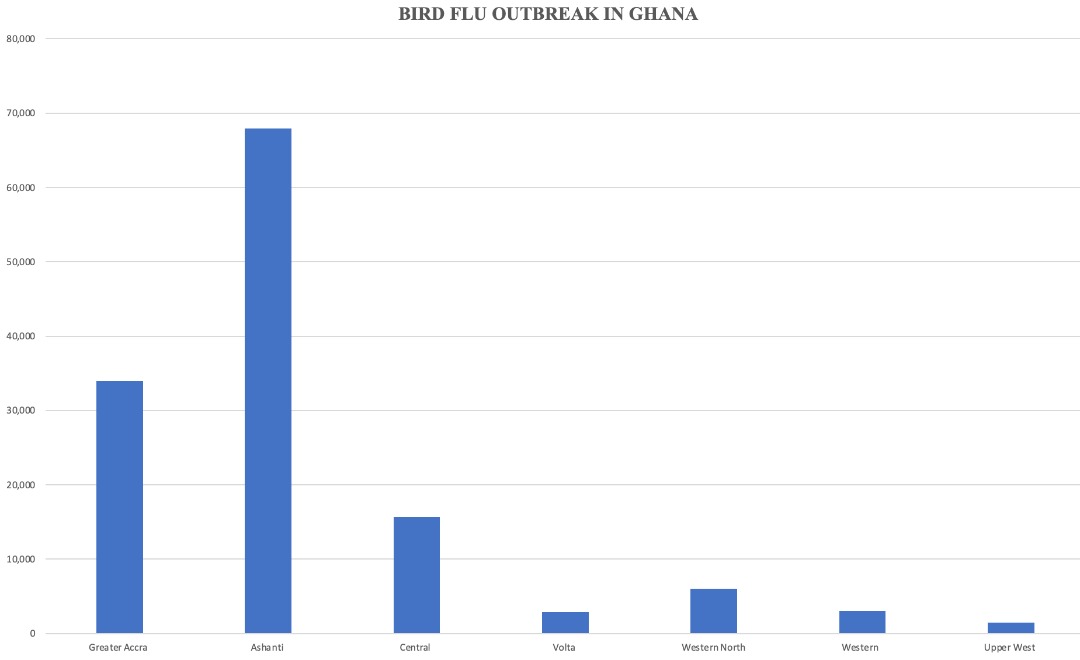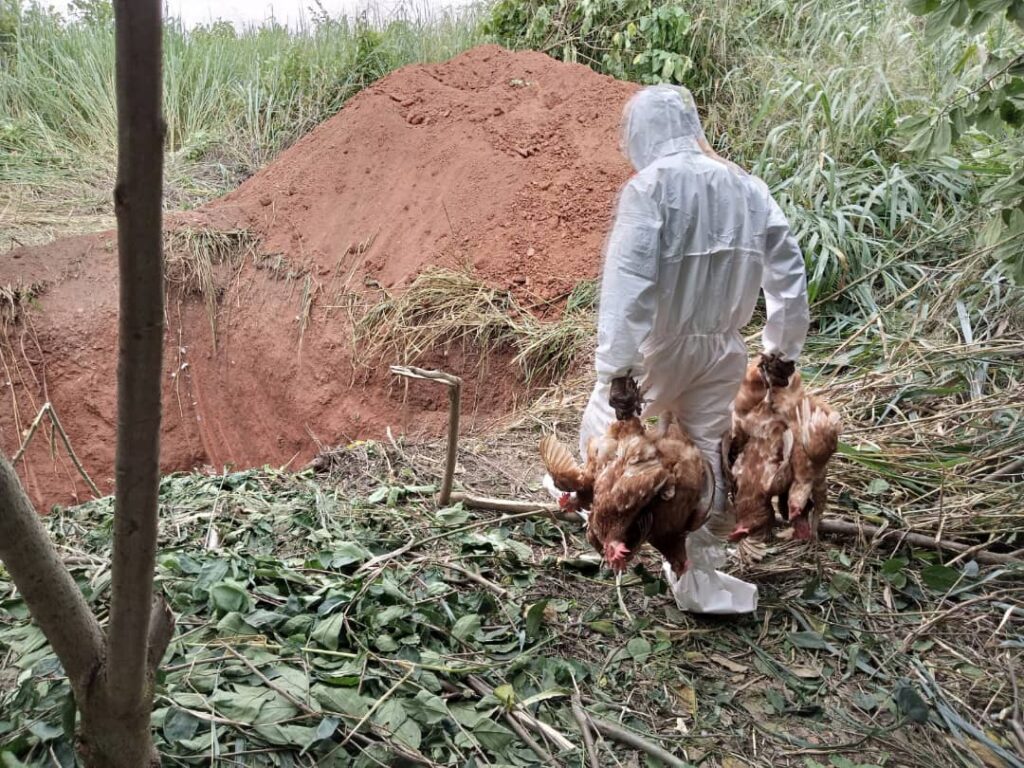Seven (7) regions in Ghana have now recorded cases of the Highly Pathogenic Avian Influenza disease also known as Bird flu, according to the country’s Veterinary Services Directorate.
The West African nation initially confirmed the outbreak in 3 out of the 16 regions of the country – Greater Accra, Volta and the Central regions. But the spread has continued to the Ashanti, Western, Western North, and the Upper West regions.
“Having the spread under control means 3 things. Early reporting, early detection & diagnosis and early containment. 2 and 3 are under Veterinary services which we are doing so. Early reporting is the role of farmers. For control we are, just that some farmers are not playing their parts,” a Risk Communicator at the Veterinary Services Directorate, Dr Benjamin Sasu told GhanaFact.

54 farms across 7 regions affected
According to the latest update, more than 13,000 birds have been affected by the virus in the last one week across the 7 regions, with total birds affected more than 130,000.
The Ashanti region leads the chart in terms of birds affected with 67,930 cases, followed by Greater Accra and the Central region. Meanwhile, the Greater Accra region has the most farms affected.
Regional breakdown of Bird Flu outbreak as of September 6, 2021
| Regions | Farms | Total death recorded |
| Greater Accra | 32 | 33,972 |
| Ashanti | 12 | 67,930 |
| Central | 5 | 15,707 |
| Western North | 1 | 5,999 |
| Western | 1 | 3,000 |
| Volta | 2 | 2,894 |
| Upper West | 1 | 1,438 |
| Total | 54 | 130,940 |
The Veterinary Services Directorate said some affected birds died naturally, while others were destroyed as part of efforts to contain the virus.
Breakdown of birds affected across 7 regions
| Regions | Natural death | Depopulated |
| Greater Accra | 18,5888 | 15,384 |
| Ashanti | 14,306 | 53,624 |
| Central | 5,036 | 10,671 |
| Volta | 668 | 2,226 |
| Western North | 1,100 | 4,899 |
| Western | 1,000 | 2,000 |
| Upper West | 1,216 | 222 |
| Total | 41,914 | 89,026 |
There has been no human infection in Ghana yet since all samples taken from people directly working with the affected birds in Ghana didn’t yield a positive result for the virus.
To ensure public safety, citizens are advised to:
- Report any unusual death of domestic poultry and wild birds to the nearest veterinary office and public authorities.
- Avoid the handling of dead birds with bare hands at all cost.
- Consume only well-cooked poultry meat and poultry products.
First Bird Flu outbreak in Ghana
Ghana first detected cases of Bird Flu in 2007 when the H5N1 virus was confirmed on a small scale poultry farm near the port city of Tema.
Consequently, the Ministry of Food and Agriculture declared the Tema Municipality an Avian Influenza infected area and banned the movement of live birds within and out of the municipality until the virus was contained.
The country has since recorded cases of bird flu disease in 2015, 2016 and 2018.
By: Gifty Tracy Aminu





